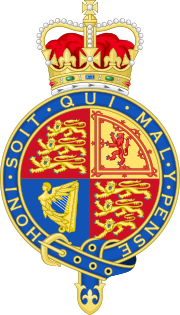Board of Commerce case
| Board of Commerce case | |
|---|---|
 |
|
| Court | Judicial Committee of the Privy Council |
| Full case name | The Attorney General of Canada v The Attorney General of Alberta and others |
| Decided | November 8, 1921 |
| Citation(s) | [1921] UKPC 107, [1922] 1 A.C. 191 |
| Case history | |
| Prior action(s) | In re Board of Commerce 1920 CanLII 66, [1920] SCR 456 (1 June 1920) |
| Appealed from | Supreme Court of Canada |
| Court membership | |
| Judges sitting | Viscount Haldane, Lord Buckmaster, Viscount Cave, Lord Phillimore, Lord Carson |
| Case opinions | |
| Decision by | Viscount Haldane |
Re Board of Commerce Act 1919 and the Combines and Fair Prices Act 1919 — commonly known as the Board of Commerce case — is a Canadian constitutional decision of the Judicial Committee of the Privy Council where the "emergency doctrine" under the federal peace, order and good government power was first created.
Following the end of the First World War, there was a rapid rise in the cost of living in the Canadian economy. In response, the Parliament of Canada passed the Board of Commerce Act, 1919 and the Combines and Fair Prices Act, 1919, the latter of which assigned the Board of Commerce two main functions:
In pursuit of its functions, the Board issued an order prohibiting certain clothing manufacturers in Ottawa from charging higher than specified profit margins. This triggered a dispute as to the Acts' constitutionality, and the Board referred the matter to the Supreme Court of Canada by way of stated case under s. 32 of the Board of Commerce Act, posing the following reference questions:
The SCC split 3–3 on the question of the constitutionality of the legislation. Anglin J, joined by Davies CJ and Mignault J considered the Acts to be intra vires, and repeated the observation he had previously made in the Insurance Act Reference:
When a matter primarily of civil rights has attained such dimensions that it affects the body politic of the Dominion and has become of national concern it has in that aspect of it, not only ceased to be "local and provincial" but has also lost its character as a matter of "civil rights in the province" and has thus so far ceased to be subject to provincial jurisdiction that Dominion legislation upon it under the "peace, order and good government" provision does not trench upon the exclusive provincial field and is, therefore, valid and paramount.
However, given the Privy Council's rulings in Citizen's Insurance Co. v. Parsons and the Local Prohibition case, he rested his decision to uphold the Acts on the basis of the federal trade and commerce power, as well as on the federal power relating to peace, order and good government.
...
Wikipedia
